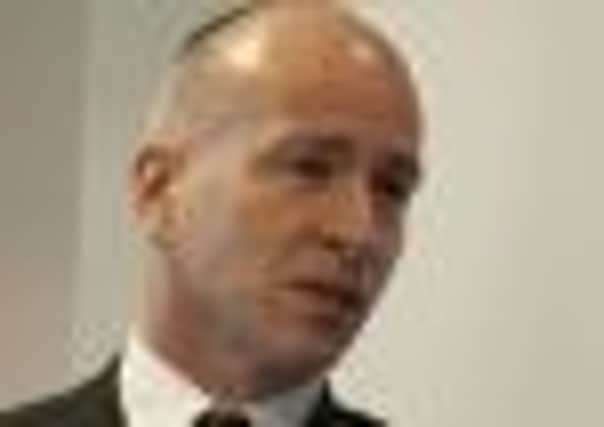Bankers look to cash in on sub-prime patients


Speaking at an event in Leeds on the future of healthcare, David MacMurchy predicted that in a decade’s time the Government will pay towards healthcare but pass on the risk to investors.
The Ernst & Young partner told the audience that investment bankers in London want to “buy sub-prime patients, wrap them up in insurance and sell those patients as a risk profile because they believe there’s a large amount of money to be made from these people”.
Advertisement
Hide AdAdvertisement
Hide AdHe said the approach is “exactly the same as sub-prime mortgages” and could be piloted within the next five or six years.
Mr MacMurchy told the Yorkshire Post: “In common with all other developed countries we have an increasingly challenged healthcare system, with increasing costs and reducing government revenues, so we need to explore new models of funding and improving patient care.”
He said: “These range from fully funded holistic government approaches – the NHS model – through to private insurers and banks funding and trading in the cost of care in partnership with doctors and hospitals.
“This latter model shifts the financial risk of an ageing and increasingly expensive population away from the government.
Advertisement
Hide AdAdvertisement
Hide Ad“Whatever the model, whether a combination of both or one of the extremes, we can expect to see a future where there will be payment for improved health outcomes rather than activity.”
An NHS spokesman said patient care will be organised by doctors, nurses and other health professionals “not investment banks”.
Mr MacMurchy was addressing a conference on health innovation hosted by the inward investment agency Leeds and Partners.
Rob Webster, chief executive of the Leeds Community Healthcare NHS Trust, told the audience that his organisation is creating risk profiles for the 790,000 people on GP lists in Leeds. He said: “You can risk stratify them to see how ill they are going to be in the future.”
Advertisement
Hide AdAdvertisement
Hide AdMr Webster said he is not interested in “selling patients” but raised the question of how the city might benefit from the intellectual property gained from the profiling exercise.
Professor John Fisher, of Leeds University, told the audience that collecting data and information provides vital evidence.
The Deputy Vice-Chancellor said the increasingly close working relationship between the city’s universities, medical businesses and NHS bodies will create the potential “to demonstrate and provide clinical evidence of effectiveness of innovations”.
“That’s really important to improve the healthcare in the UK but to address the global markets because it’s that whole supply chain of manufacturing innovation with evidence at the end that will generate inward investment.”
Advertisement
Hide AdAdvertisement
Hide AdAlex Abbott, chief technology officer at NHS Commissioning Board, said the real benefit would come from sharing risk profiling information with patients themselves so they can take action to improve their health.
Lurene Joseph, chief executive of Leeds and Partners, wants to promote the healthcare industry to national and international investors and believes the sector can create 7,000 new jobs over the next 10-15 years.
It is estimated that the sector already supports around 3,000 jobs.
Ms Joseph said Leeds is one of the few cities in Britain with a “constellation” of private sector companies, universities and NHS bodies. But she warned that other competitors are coming up.
Roger Marsh, deputy chairman of Leeds and Partners, said promoting innovation in healthcare could improve the health of the population and boost wealth creation.